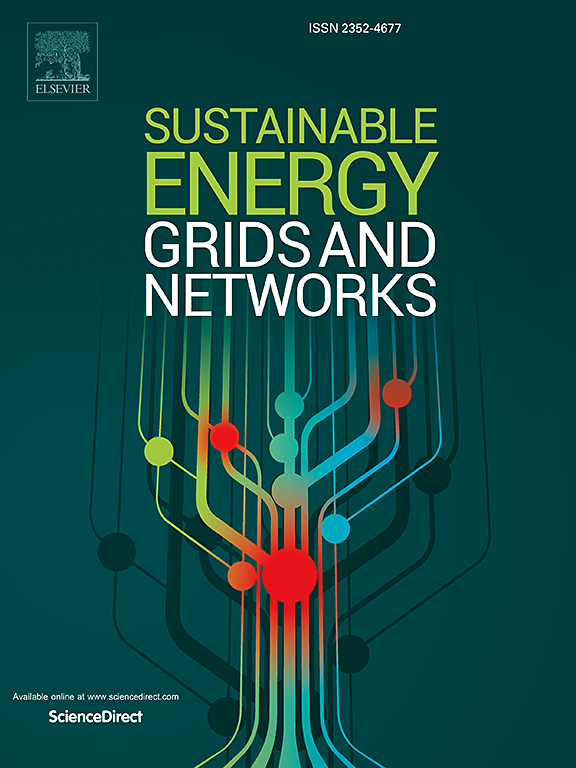浮动太阳能发电系统的可靠性技术经济评估
IF 4.8
2区 工程技术
Q2 ENERGY & FUELS
引用次数: 0
摘要
浮动太阳能光伏系统(FPV)是一种利用水面太阳能的前景广阔的技术。FPV 系统具有众多优点,包括增加土地可用性、减少水蒸发和改善系统冷却,因此在可持续能源生产方面具有巨大潜力。然而,由于其在水体中安装和运行的特殊性,老化管理成为确保长期成功的关键因素。因此,可靠性分析在预测和降低运行风险以及估算 FPV 项目的经济可行性方面发挥着关键作用。在此背景下,本文提出了一种 FPV 系统可靠性感知技术经济评估方法。该方法通过印度的一个案例研究进行了测试,并将结果与地面光伏(GPV)系统进行了比较。在此,考虑了不同的故障和修复策略,以确定使用寿命性能。结果表明,尽管 FPV 系统的故障率较高,但考虑到标准维护,FPV 系统的发电量比类似的 GPV 系统高出 5.38%。光伏系统的发电成本取决于维修和维护。在正常维护情况下,FPV 系统的平均度电成本(LCOE)为 0.0551 美元/千瓦时,与 GPV 系统的度电成本相当,而在减少维修行动的情况下,FPV 的度电成本高于 GPV 系统的度电成本。本文章由计算机程序翻译,如有差异,请以英文原文为准。
Reliability-aware techno-economic assessment of floating solar power systems
Floating solar photovoltaic systems (FPV) have emerged as a promising technology to harness solar energy on water surfaces. With its numerous benefits, including increased land availability, reduced water evaporation, and improved system cooling, FPV systems hold great potential for sustainable energy generation. However, due to its unique installation and operation in water bodies, the management of ageing becomes a critical factor to ensure long-term success. Consequently, reliability analysis plays a pivotal role in predicting and mitigating operational risks and estimating the economic feasibility of FPV projects. In this context, this paper presents a reliability-aware techno-economic assessment approach of FPV systems. The approach is tested with a case study in India, and the results are compared with ground-based photovoltaic (GPV) systems. Here, different failure and repair strategies are taken into account to determine the lifetime performance. Results showed that even though FPV system has higher failure rate, considering standard maintenance, the energy generated by the FPV system is 5.38% higher than similar GPV system. The cost of electricity by the PV system depends on the repair and maintenance. For normal maintenance the levelized cost of electricity (LCOE) for FPV system is calculated as 0.0551 $/kWh which is comparable to the LCOE by GPV systems, while for reduced repair actions, the LCOE of the FPV is higher than the LCOE of the GPV system.
求助全文
通过发布文献求助,成功后即可免费获取论文全文。
去求助
来源期刊

Sustainable Energy Grids & Networks
Energy-Energy Engineering and Power Technology
CiteScore
7.90
自引率
13.00%
发文量
206
审稿时长
49 days
期刊介绍:
Sustainable Energy, Grids and Networks (SEGAN)is an international peer-reviewed publication for theoretical and applied research dealing with energy, information grids and power networks, including smart grids from super to micro grid scales. SEGAN welcomes papers describing fundamental advances in mathematical, statistical or computational methods with application to power and energy systems, as well as papers on applications, computation and modeling in the areas of electrical and energy systems with coupled information and communication technologies.
 求助内容:
求助内容: 应助结果提醒方式:
应助结果提醒方式:


